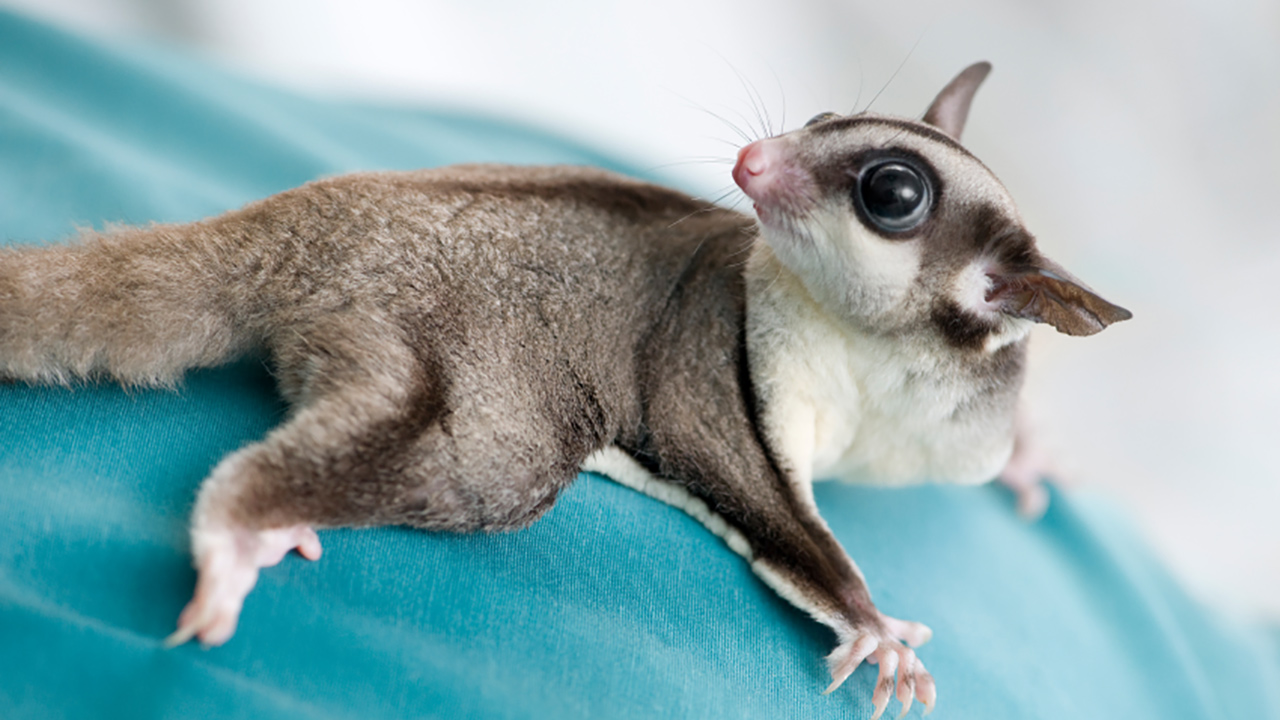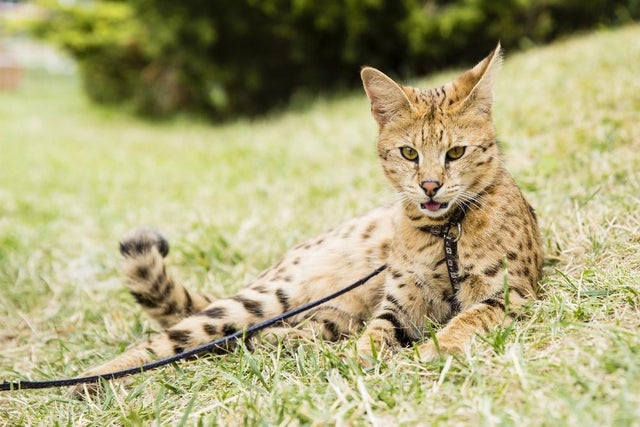What could be cuter than a sugar glider? These playful animals have become popular in recent years. However, do they really make good pets?
Connect with a verified veterinarian in minutes. Licensed vets are available 24/7 to answer your questions. No need to worry about your furry family member.
What is a Sugar Glider?
Sugar gliders are small marsupials, which are in the same family as kangaroos and the kola bear. These adorable animals originally came from the rainforest in Australia and Indonesia. Nowadays, however, these small animals are domestically bred as pets in the US.
They’re called “sugar glider” for a good reason—it’s because they love to eat anything sweet. They especially love fresh veggies and fruit. In addition, they have a membrane (a type of skin) that connects their wrists to their ankles, which allows them to glide from tree to tree in the wild.
While they do resemble rodents, sugar gliders are actually marsupials (they carry their young in a pouch after birth). They’re very appreciated as pets in part due to their long lifespan. The typical life expectancy of a pet sugar glider is 12-15 years, which is much longer than hamsters, gerbils and rodents in general.
Sugar gliders are also small—they’re usually about 5-6 inches long (you’ll need to add on another 6 inches for their tail), and weigh between 4 and 5.5. ounces. This makes them easy to carry and easy to travel with.
These little marsupials are also quite intelligent. In fact, pet parents have said sugar gliders are about as intelligent as a dog. It’s even possible to train them to learn their name, come when called, and more.
Pet parents also appreciate the fact that sugar gliders, when cared for properly and with the right diet, have no bad odor, like rodents that are kept as pets. And sugar gliders tend to keep themselves clean, and never need a bath. They also don’t chew on everything like pet rodents.
One of their most endearing qualities is that sugar gliders tend to form a very strong bond with their humans. Once bonded with a family, they can even travel with you in public. You don’t need to keep them in a cage. They are simply happy to stay in your pocket, on your shoulder, etc. They just want to be with you every moment.
This is what a sugar glider is—adorable and lovable!
Do Sugar Gliders Make Good Pets?
This question has been asked for years, with no definite answer. The problem is that many of these small animals are illegally removed from their natural habitats, and then sold on the black market.
And the animals that have been procured in this way often don’t make good pets. This is because they’re wild and not socialized to be a pet.
Otherwise, sugar gliders can make a good pet; however, you’ll need to learn about them and how to care for them properly before adopting one of these cute little animals. They’re definitely more hands on than a hamster or gerbil.
Keep in mind that sugar gliders are social animals, so in order to have a happy, well-adjusted pet, you’ll need to adopt a second sugar glider. They really don’t like to be alone and become depressed when alone too much. They need a lot of companionship. For this reason, it’s best to adopt two sugar gliders of the same sex. Otherwise, males will fight if a female is included in the group. If you do adopt a male and female sugar glider pair, then you’ll need to make sure the male is neutered, so you don’t eventually end up with several more sugar gliders on your hands.
Also, you’ll need to find out if sugar gliders are legal to keep in your state. Some states consider these exotic animals and prohibit anyone from keeping sugar gliders as pets.

Review symptoms, medications & behavior to keep your pets healthy with a Vet Online in just minutes.
Ask a Vet Live NowOther Things to Know About Sugar Gliders as Pets
These little critters are very smart, active and curious pets! And they love to play with their family members! Sugar gliders will also climb almost everything possible, so be prepared. And they enjoy snuggling. If you have a pocket, your sugar glider will be happy to cuddle up and stay there nice and warm.
Sugar gliders also tend to be pretty healthy, though if fed too much fruit, they can easily become obese.
Care of a Sugar Glider
Sugar gliders require a large cage in order to give them enough room to jump, climb, leap and glide. The minimum cage size for one sugar glider is 3 ft x 2 ft x 3 ft. The cage needs to be metal and include a method to keep it locked. Bars should be spaced no further than ½ inch apart, otherwise they can escape through the bars.
While you’ll need a cage for your sugar glider, they will still need to be let out of the cage every day. This will enable them to get plenty of exercise, but you’ll need to keep an eye on them at all times. They can easily get into trouble if unsupervised!
In addition, you’ll want to furnish the cage with a pouch or small bag, where the sugar glider can sleep during the day. The cage should also include small toys, branches, or shelves, and even exercise wheels that are favored by rodents. Because these small animals originated in warmer climates, their cage needs to be kept at a temperature between 75-80 F.
When it comes to food, sugar gliders require a strict diet. This needs to be comprised of about 25% protein, 25% green leafy veggies, and small amounts of fruit, and 50% commercially produced food that’s specifically for sugar gliders. They can eat some homecooked foods such as cooked eggs, lean cooked meat and small insects (such as crickets and mealworms). Avoid feeding them too much fruit, as this can lead to obesity.
So, can sugar gliders make good pets? The answer is yes, but only for those pet parents who truly understand these adorable little marsupials. Sugar gliders have very strict requirements when it comes to their need for attention and socializing, and food and housing. If you can meet these needs, then a sugar glider may be a good pet for you and your family.
Connect with a verified veterinarian in minutes. Licensed vets are available 24/7 to answer your questions. No need to worry about your furry family member.

Kim
Kim is a talented author, who loves animals especially dogs. She engaged in writing books and articles relating to animals a decade ago. Kim resides in Chicago with her husband and son. The family is the proud owner of a dog and a parrot (Jack and Lily). Kim wanted more than these two pets, but her husband put his foot down... She often visits elementary schools to talk to the kids about what she learned about pets and how they could learn from them.
Review symptoms, medications & behavior to keep your pets healthy with a Vet Online in just minutes.
Ask a Vet Live Now


